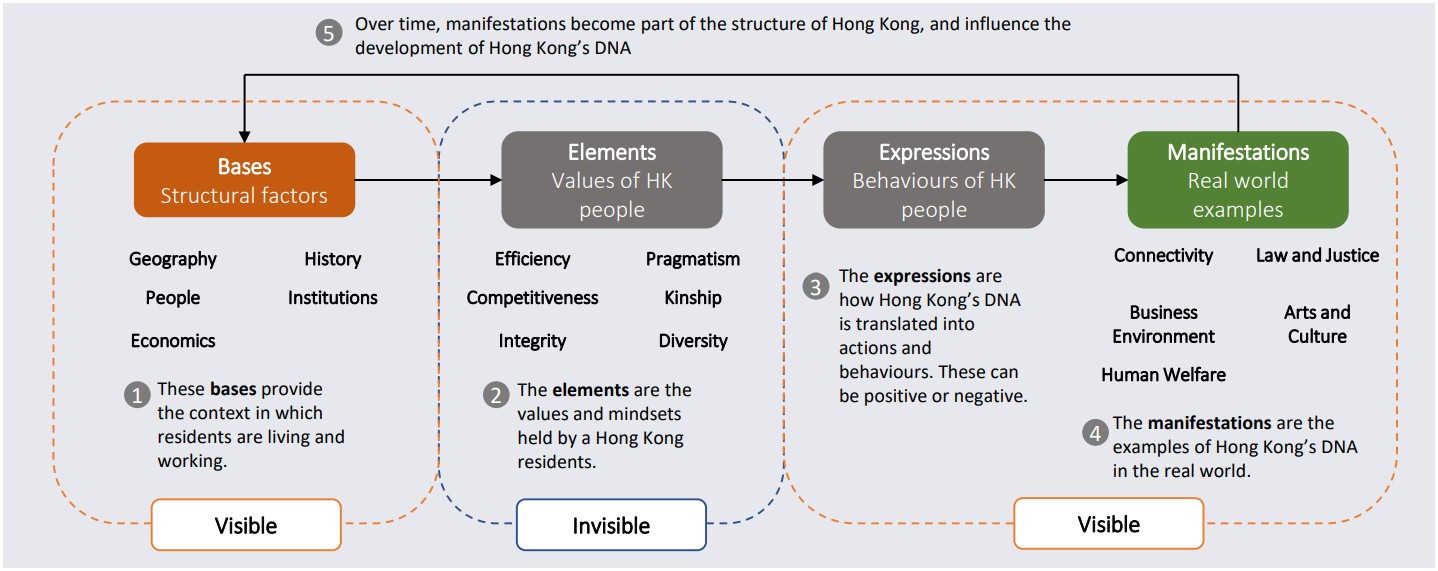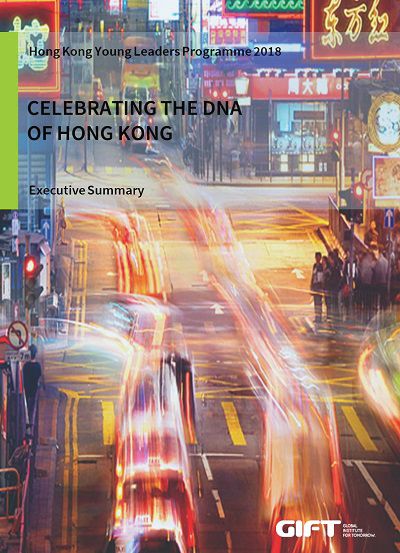All major cities, including Hong Kong, have a certain attitude and mindset that defines the people that live there. This is what differentiates a city from its peers. We could understand this as the “DNA” of a city: the values and behaviours that lead people to create the organisations, businesses and communities that make a city what it is.
Challenged by both internal and external changes, Hong Kong is currently trying to determine what its future role in China, Asia and the world will be. But overcoming uncertainty about the future will need certainty about who we are and where we are now. By understanding the “DNA” of Hong Kong, we can build a framework to analyse what makes the city unique.
The DNA framework proposed herein has four stages: the bases, macro-level structural factors that do not change in the long-term, help to shape the elements of Hong Kong’s DNA, which are the unique attitudes and mindsets held by Hong Kong’s residents. These elements are expressed by Hong Kong people as both
positive and negative behaviours, and are manifested as the visible things we see in the city.

The Future of Hong Kong’s DNA
Looking to the future, the report outlines the following six global megatrends will present a significantly different environment for Hong Kong in the future. These megatrends are:
- Hyper-globalisation
- Climate change
- Changing demographics
- Rise of China
- Innovation and technology
- Nationalism, protectionism, and populism
To account for these changes, Hong Kong will need to both strengthen its existing DNA elements while also fostering new ones. Specifically, we highlight three new elements that would serve Hong Kong well in the future:
- Moving beyond diversity to inclusivity
- Increasing global awarenessfor Hong Kong as a service hub
- Creating a society that is contented with its standard of living
The report highlights key policy focus areas to support Hong Kong’s growth, including land and housing, strengthening institutions, improving education, and boosting the city’s international presence.


